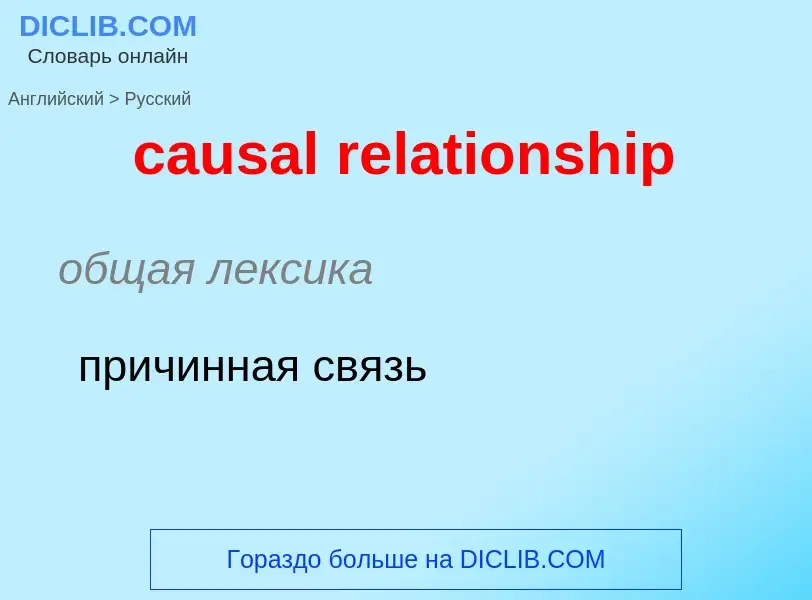Übersetzung und Analyse von Wörtern durch künstliche Intelligenz ChatGPT
Auf dieser Seite erhalten Sie eine detaillierte Analyse eines Wortes oder einer Phrase mithilfe der besten heute verfügbaren Technologie der künstlichen Intelligenz:
- wie das Wort verwendet wird
- Häufigkeit der Nutzung
- es wird häufiger in mündlicher oder schriftlicher Rede verwendet
- Wortübersetzungsoptionen
- Anwendungsbeispiele (mehrere Phrasen mit Übersetzung)
- Etymologie
causal relationship - Übersetzung nach russisch
общая лексика
причинная связь
[kɔ:z]
общая лексика
причина
основание
повод
быть причиной
служить поводом
вызывать
причинять
фактор
вопрос
требующий решения
дело
существительное
[kɔ:z]
общая лексика
причина
основание
(for
[редк.] of) мотив
повод
дело
общее дело
мотив, повод
юриспруденция
судебное дело
процесс
мотивы или соображения
высказываемые стороной (на процессе)
дело, процесс
синоним
глагол
общая лексика
быть причиной
служить поводом
вызывать
причинять
заставлять
побуждать
добиваться
быть причиной, причинять, вызывать
синоним
Definition
Wikipedia
Causality (also called causation, or cause and effect) is influence by which one event, process, state, or object (a cause) contributes to the production of another event, process, state, or object (an effect) where the cause is partly responsible for the effect, and the effect is partly dependent on the cause. In general, a process has many causes, which are also said to be causal factors for it, and all lie in its past. An effect can in turn be a cause of, or causal factor for, many other effects, which all lie in its future. Some writers have held that causality is metaphysically prior to notions of time and space.
Causality is an abstraction that indicates how the world progresses. As such a basic concept, it is more apt as an explanation of other concepts of progression than as something to be explained by others more basic. The concept is like those of agency and efficacy. For this reason, a leap of intuition may be needed to grasp it. Accordingly, causality is implicit in the logic and structure of ordinary language, as well as explicit in the language of scientific causal notation.
In English studies of Aristotelian philosophy, the word "cause" is used as a specialized technical term, the translation of Aristotle's term αἰτία, by which Aristotle meant "explanation" or "answer to a 'why' question". Aristotle categorized the four types of answers as material, formal, efficient, and final "causes". In this case, the "cause" is the explanans for the explanandum, and failure to recognize that different kinds of "cause" are being considered can lead to futile debate. Of Aristotle's four explanatory modes, the one nearest to the concerns of the present article is the "efficient" one.
David Hume, as part of his opposition to rationalism, argued that pure reason alone cannot prove the reality of efficient causality; instead, he appealed to custom and mental habit, observing that all human knowledge derives solely from experience.
The topic of causality remains a staple in contemporary philosophy.

![Why-because]] graph of the capsizing of the [[Herald of Free Enterprise]] (Click to see in detail.) Why-because]] graph of the capsizing of the [[Herald of Free Enterprise]] (Click to see in detail.)](https://commons.wikimedia.org/wiki/Special:FilePath/Herald of Free Enterprise WBG.png?width=200)
